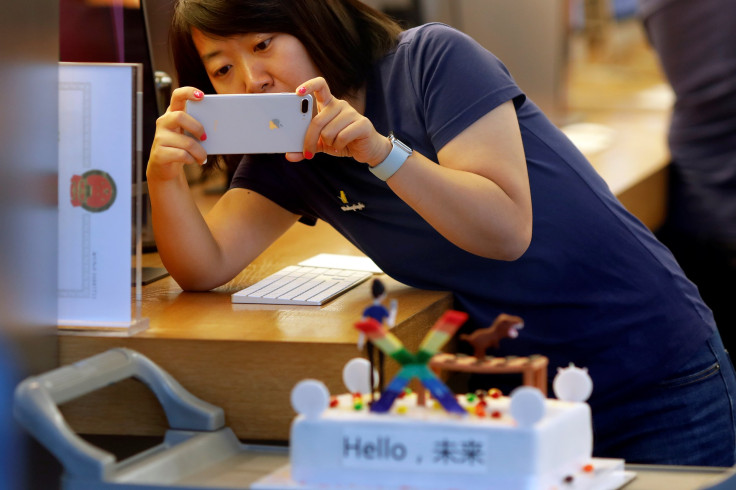Will Apple Get Caught in Trump's Trade War or Not?

As it turns out, trade wars aren't actually all that easy to win. Quite the contrary: They often devolve into lose-lose situations, but that hasn't stopped President Trump from escalating his trade war with China. The tweeter in chief threatened additional tariffs on $200 billion worth of goods coming out of the Middle Kingdom earlier this week, following the 25 percent tariff that was implemented covering $50 billion worth of goods earlier this month. Markets have been rattled by the situation, which seems to escalate on a daily basis.
This article originally appeared in The Motley Fool.
The world's largest company now potentially finds itself in the crosshairs.
Apple is stuck in the middle
China is of utterly critical importance to Apple (NASDAQ:AAPL), not only because it is the world's largest smartphone market by volume, but also because Apple's supply chain is concentrated in Asia. At least the risk of nuclear war breaking out on the Korean peninsula seems to have subsided, which was another Trump-related risk that could have crippled the Mac maker's supply chain. The majority of iPhones are assembled in Zhengzhou, China (earning it the nickname of "iPhone City"), which are then exported to the U.S. and could potentially be affected by the tariffs.
Complicating the situation even further and making it incredibly difficult for investors to properly assess the risks, there are mixed messages coming from the administration. The New York Times reported yesterday that the Trump administration assured CEO Tim Cook that iPhones would not be subjected to tariffs. Cook has been able to earn significant political brownie points with the administration, such as Apple's announcement in January that it would be investing $350 billion into the U.S. economy, when in reality much of that spending was already planned. Trump proudly touted that announcement as a positive result of tax reform.
However, White House trade advisor Peter Navarro said today that he wasn't aware of any tariff exemption being carved out for iPhones, according to Bloomberg. "With respect to Tim Cook and exceptions, I have no knowledge or comment about that," Navarro reportedly said. Whether or not iPhones coming out of China get slapped with tariffs has enormous consequences for Apple, and the uncertainty from the administration is only making things murkier.
Beyond direct tariffs, the Chinese government has other levers it can pull to disrupt Apple's business, the Times report points out. The Chinese government could create delays that would have a ripple effect throughout Apple's supply chain. The fate of China-based ZTE's U.S. business also happens to be up in the air, with Trump attempting to lift sanctions but Congress now pushing back. If ZTE's U.S. business gets crushed, it's not unthinkable that the Chinese government may attempt to retaliate in some way against Apple.
Simply put, Apple is being subjected to a growing range of geopolitical risks that could harm its business in a plethora of ways, and investors aren't getting much indication as to how it will all play out.
Evan Niu, CFA owns shares of Apple. The Motley Fool owns shares of and recommends Apple. The Motley Fool has the following options: long January 2020 $150 calls on Apple and short January 2020 $155 calls on Apple. The Motley Fool has a disclosure policy.




















